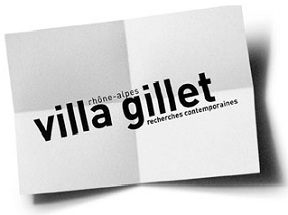Some Thoughts About Memory, Identity, and the False Family Narrative
Mira Bartók is a Chicago-born artist and writer and the author of twenty-eight books for children. Her writing has appeared in several literary journals and anthologies, and has been noted in The Best American Essays series. She lives in western Massachusetts, where she runs Mira’s List, a blog that helps artists find funding and residences all over the world. The Memory Palace was named a Best Book of 2011 by The Washington Post, The Chicago Tribune, The Globe and Mail, Library Journal, and Bookpage.
Identity and family legacy are partially formed by the family “memory narrative” — a family member, usually our mother or father, tells us stories about what happened before we were born or when we were too young to remember momentous events. But what happens when that narrator in the family is mentally ill, or a compulsive liar? In my case, my schizophrenic mother was the unreliable narrator of our family history. And my alcoholic father, a gifted writer who left when I was four, told my mother’s family grandiose lies about his own past. So where does truth lie in memoir and nonfiction if our family legacy and identity is influenced by the false or convoluted memories of others? And what about our own “mis-rememberences” of the past or the shared (and often contradictory) memories of our siblings? How do we define ourselves in our family, based on what we are told happened when what we were told happened never even occurred? To what extent do we, as writers trying to reclaim our past, our identity and family legacy, ‘fill in the gaps’ with our imagination?
In 1999 I suffered a traumatic brain injury that caused both short-term and long-term memory loss. This injury, along with my doubts about my mentally ill mother’s veracity, led me to explore the nature of memory itself. I became more interested in how we remember, what we misremember and what we choose to forget. I also wanted to explore how my identity was shaped by the delusional memories my mother passed on to me when I was young. My schizophrenic mother told me stories about family members who had been ‘disappeared’ or killed during the McCarthy era, stories about sexual predators who were stalking us, kidnappers who were waiting in the wings, and so on. She also told me bizarre tales about my ancestors—wrongful deaths, forced sterilizations, dangerous experiences with the Nazis, the Mafia and CIA, etc. that proved to be completely based on her auditory and visual hallucinations.
In writing my memoir, I also began to question my own recollections that I had when I was quite small. Before the age of three we have what is called childhood amnesia. We are still developing cognitively, still forming the language centers in the brain. Therefore, our memories are vague and dreamlike and cannot be trusted. When we are very young, we do not have the words for certain things or experiences that help shape how we remember.
And then there are those times we feel a certain memory is true, but someone in our family tells us that we are ‘remembering it wrong.’ Or that it never happened at all. In the 1982 Italian film La Notte delle Stelle Scadente (The Night of the Shooting Stars) a mother recounts to her young son some of her childhood memories of the Fascist reign in Italy. In closing, she offers this: “My story ends here, my love. I don’t know if things happened exactly like that. I was only six then. But the story is true.”
Are these stories we are emotionally attached to really true, just because we feel they are? And does that even matter? What I came to realize in writing my memoir and studying neuroscience is that the mercurial nature of memory—all our mis-remembrances, our forgotten events, our self-doubt in our what “really happened”— can offer the writer a more liberating and imaginative path to writing about the self and the self’s role in the family narrative.
In closing, here are some quotes to think about in regard to memory and writing one’s life story:
Author Bill Roorbach, in his book Writing Life Stories, says, “…If memory is what people are made out of, then people are made out of loss. No wonder we value our possessions so much. And no wonder we crave firm answers, formulae, facts and figures. All are attempts (however feeble in the end) to preserve what’s gone. The present is all that’s genuinely available to anyone. Even facts distort: What’s remembered, recorded, is never the event, no matter how precise the measurement.”
"Memory is the enemy of wonder, which abides nowhere else but in the present. This is why, unless you are a child wonder depends on forgetting — on a process, that is, of subtraction.”
Michael Pollan, from The Botany of Desire
“…Recalling a memory episodically — no matter how important the memory — is not like simply turning to a photograph in an album. Recall of memory is a creative process. What the brain stores is thought to be only a core memory. Upon recall, this core memory is then elaborated upon and reconstructed, with subtractions, additions, elaborations, and distortions. What biological processes enable me to review my own history with such emotional vividness?”
Eric Kandel, In Search of Memory: The Emergence of a New Science of Mind.
“…Every time we remember anything, the neuronal structure of the memory is delicately transformed, a process called reconsolidation…the memory is altered in the absence of the original stimulus, becoming less about what you remember and more about you. So the purely objective memory, the one “true” to the original taste of the Madeleine, is the one memory you will never know. The moment you remember the cookie’s taste is the same moment you forget what it really tasted like.” …Proust presciently anticipated the discovery of memory reconsolidation. For him, memories were like sentences: they were things you never stopped changing…so you could say that our memories are not like fiction. They are fiction. If you prevent the memory from changing it ceases to exist. …This is Proust’s guilty secret: we have to misremember something in order to remember it.”
Jonah Lehrer, Proust Was a Neuroscientist.
And then, of course, there is Jorge Luis Borges who concludes in his famous short story about a man crippled by his inability to forget, “Funes the Memorious”: “To think,” Borges writes, “is to forget.” He suggests, in this beloved tale that it is forgetting, not remembering, that is the essence of what makes us human.
Cette ressource a été publiée dans le cadre de la quatrième saison du festival "Walls and Bridges", organisé par la Villa Gillet, qui s'est tenu à New York du 11 au 20 octobre 2012.
Pour citer cette ressource :
Mira Bartók, Some Thoughts About Memory, Identity, and the False Family Narrative, La Clé des Langues [en ligne], Lyon, ENS de LYON/DGESCO (ISSN 2107-7029), janvier 2013. Consulté le 14/07/2025. URL: https://cle.ens-lyon.fr/anglais/litterature/entretiens-et-textes-inedits/some-thoughts-about-memory-identity-and-the-false-family-narrative



 Activer le mode zen
Activer le mode zen![[title-image]1332154742254[/title-image] mira_1358248473772-jpg](https://cle.ens-lyon.fr/anglais/images/mira_1358248473772-jpg)



